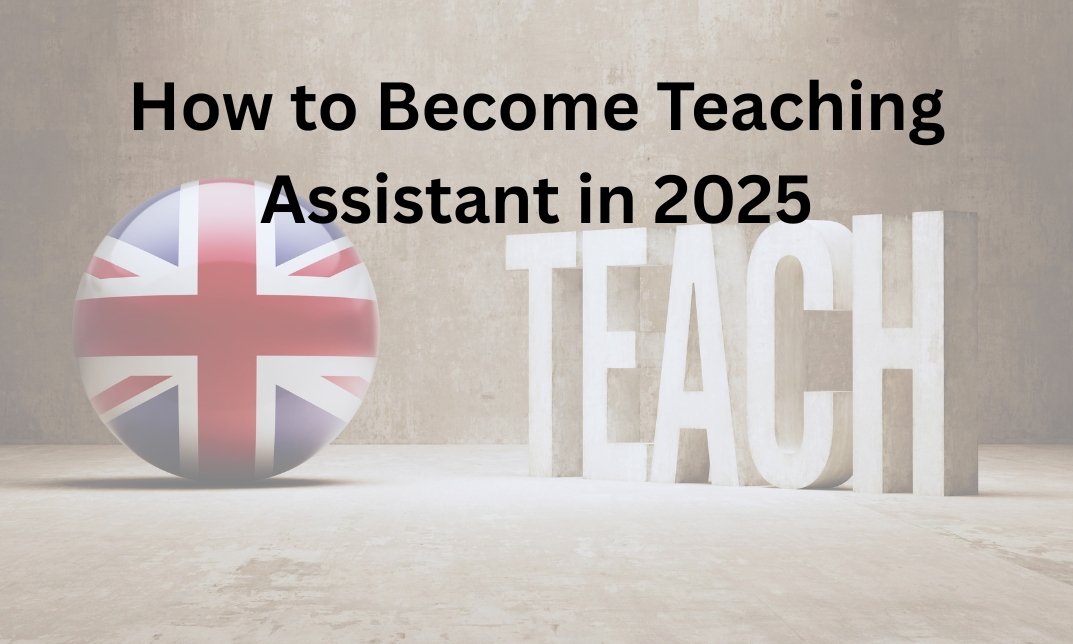Subtotal:
£25.99
Wondering can a teaching assistant work in a nursery in 2026? Yes—but they need the right qualifications.
Teaching Assistants (TAs) play a big role in schools. They help teachers, support children in learning, and keep things running. But what if you’re a TA thinking about working in a nursery instead? Good news! With new rules in 2025, moving from a school to a nursery will get easier. Here’s everything you need to know to make that move.
What’s the Difference Between a TA and a Nursery Worker?
What Does a Teaching Assistant Do?
Teaching assistants usually work in primary or secondary schools. Their main tasks are helping students learn, supporting kids who need extra help, and getting classroom stuff ready. TAs often help children with special needs. They also mark homework, handle behaviour, and keep classrooms clean. To become a TA, you usually need GCSEs in English and Maths and a Level 2 or Level 3 qualification in teaching support.
But here’s the problem: TA qualifications often focus only on schools. They don’t automatically qualify you for nursery jobs.

What Does an Early Years Practitioner Do?
Young children aged 0 to 5 are cared for by Early Years Practitioners (EYPs), who typically work as Nursery Workers. These professionals support early development by teaching counting, encouraging play, reading with the children, and meeting their daily care needs. They help ensure that children learn and grow in a healthy, cheerful environment.
Most nursery roles require a government-approved Level 2 or Level 3 Early Years qualification. These qualifications are designed to meet the strict standards of the Early Years Foundation Stage (EYFS). Without an approved qualification, you cannot be legally counted in the nursery’s staff-to-child ratio.
Can a Teaching Assistant Work in a Nursery?
In 2025, big changes are coming that can help TAs switch to nurseries more easily. With new rules coming in 2025, can a teaching assistant work in a nursery without starting over? Absolutely—the government will start something called the Experience-Based Route (EBR). This new path helps experienced staff, like TAs, qualify faster to work in nurseries.
What Is the Experience-Based Route (EBR)?
The EBR starts in March 2025. It’s for people who have worked at least one year with children aged 0 to 5 years. Many TAs already meet this rule, especially those working in first year of primary school.
You are required to complete between 751 and 900 hours supervised in a nursery to be qualified through the EBR. You’re also required to have GCSE English at a grade 4/C or above and Paediatric First Aid (PFA) training. Once you complete the training, you are eligible to count toward staff-to-child ratios in nurseries from September 2025.
But remember, only half the staff in a nursery can qualify through the EBR at the same time. Also, your EBR qualification usually only works at the nursery where you trained. So, choose carefully when you decide where to do your EBR.
What Basic Qualifications Do You Need for Nursery Work?
Before you start nursery work, you must check if you have basic qualifications. The main ones are GCSEs in English and Maths. Most nurseries and early years courses expect at least a grade 4/C in these subjects.
If you don’t have these GCSEs, don’t worry! Free courses can help you catch up quickly. For anyone aiming higher, like becoming an Early Years Teacher, GCSE Science is also needed.

Do You Need Paediatric First Aid?
Yes! Starting September 2025, all nursery staff counted in official ratios must have valid Paediatric First Aid training. PFA training helps keep kids out of harm’s way, mainly when emergencies occur. You’ll find out what to do if a child is choking, is injured or needs urgent medical attention. It is important to use a training provider that has approval.
What Are Staff-to-Child Ratios and Why Do They Matter?
The EYFS sets clear rules on how many adults must look after children. These rules depend on the children’s ages:
- For children under 2, you must have 1 adult for every 3 children.
- For children aged 2, you need 1 adult for every 5 children.
- For children aged 3 and over, the ratio is 1 adult to 8 children unless there’s a qualified teacher. If a qualified teacher is present, it’s 1 adult for every 13 children.
Meeting these ratios means your qualifications matter. TAs without the right nursery qualifications can’t be counted in these ratios. That’s why getting the correct certificate is so important.
What Does “Full and Relevant Qualification” Mean?
In nursery jobs, “full and relevant” means your qualification meets government rules to count in staff ratios. Most TA qualifications don’t meet this nursery-specific rule. Check your qualification status using the government’s Early Years Qualification List. If your TA qualification isn’t on the list, you’ll likely need extra training.
Why Is 2025 the Best Time to Switch?
In 2025, the government is expanding childcare. More families will get 30 hours of free childcare from when their child turns 9 months old. That means nurseries will need a lot more qualified staff. With high demand, this is the best time to switch to nursery work.
The start of the EBR and extra childcare support creates a great chance for TAs. If you have childcare experience, you can qualify faster through the EBR. Nurseries will want to hire experienced, skilled TAs who have the right certificates.
Curious about how much Teaching Assistants earn in the UK? Read our full breakdown of TA salaries here.
What Other Changes Are Happening in Nurseries in 2025?
Besides qualifications, nursery rules around keeping children safe are getting stricter. Here’s what’s new:
- Nurseries must check work references carefully. They can’t accept references from family members.
- Nurseries must have clear rules for checking on child absences and emergencies.
- Staff must do safeguarding training often. The lead safeguarding person needs updated training every two years.
- New rules will protect children’s privacy during toileting and changing.
As a TA, you probably already know a lot about safeguarding. But you’ll need to update your training and learn these nursery rules to stay up to date.
Can You Work in a Nursery Without a Degree?
Yes! Most starting nursery jobs do not need a university degree. Many good nursery staff start with just GCSEs and a Level 2 or 3 Early Years qualification. Apprenticeships also offer practical ways to train while earning money. Later, if you want to move up, you can always study for a higher-level qualification or even Early Years Teacher Status.
How Can You Make Yourself Stand Out?
When applying for nursery jobs, show off your TA experience. Clearly highlight your skills in child development, safeguarding, special needs, and classroom support. Employers value real-life experience and hands-on work with children. Your TA skills in communication, care, and support will make you a strong choice.
Also, be active. Start training early, complete your PFA certificate, and write down your childcare experience. Think about reaching out to local nurseries early to talk about the EBR and your career plans.
Is Ongoing Training Important in Nursery Jobs?
Ongoing training is very important in nursery work. After getting hired, you’ll keep learning about things like safeguarding, child development, and helping children with special needs. The nursery world changes often, and you’ll need regular updates to your knowledge and skills. Being open to learning helps you stay sharp, confident, and ready for your role.
Making the Move in 2025: Your Step-by-Step Plan
Ready to make your move? Here’s a quick recap of your action plan:
- Check Your Qualifications: Use the government’s online tool to check your certificates.
- Get Your GCSEs: Make sure you have English and Maths at grade 4/C.
- Start Your Paediatric First Aid Training: Get certified by September 2025.
- Write Down Your Experience: Keep proof of your one year working with children aged 0–5.
- Pick Your Route: Choose the EBR for a faster move or a full Early Years qualification.
- Apply and Show Off Your Skills: Clearly show how your TA skills match nursery needs.
With these steps, you’re ready for a smooth change. Nursery work offers great rewards, job safety, and the chance to make a big difference in children’s lives. 2025 is the perfect time to begin your new journey in nursery work!
At Wise Campus, our online Teaching Assistant course and EYFS Teaching Diploma is designed to give you the skills, confidence, and certification you need to succeed—wherever your career takes you.







